herb guide warrior cats
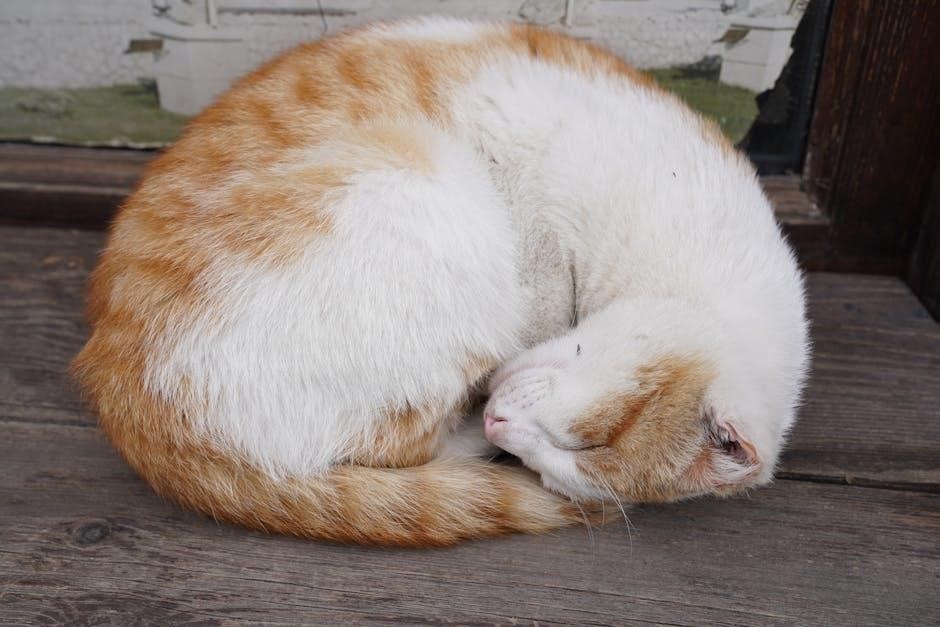
Warrior Cats’ rich world features a detailed system of herbal medicine‚ crucial for healing and survival within the Clans;
herbs like alder and beech leaves are vital.
This ancient knowledge‚ passed down through generations of medicine cats‚ blends practical application with a deep respect for nature’s power.
The Importance of Herbs in Warrior Cat Medicine
Herbs are absolutely fundamental to the survival and well-being of the Warrior Clans‚ serving as the primary means of treating injuries‚ illnesses‚ and even poisoning.
Without the knowledge of medicinal plants‚ simple scratches could become infected‚ broken bones would never mend properly‚ and deadly toxins would claim countless lives.

Medicine cats hold a position of immense respect within the Clans precisely because of their expertise in identifying‚ gathering‚ and applying these natural remedies.
From stopping bleeding with cobwebs to soothing burns with dock‚ each herb possesses unique properties essential for addressing a wide range of ailments.
The skillful use of herbs isn’t merely about alleviating symptoms; it’s about restoring balance and promoting the body’s natural healing processes‚ ensuring the Clan’s continued strength and vitality.
Historical Context of Herb Lore in the Clans
The tradition of herb lore within the Warrior Clans isn’t a recent development; it’s a deeply ingrained practice stretching back to the very founding of the Clans themselves.
Oral history suggests that the first medicine cats were guided by StarClan‚ receiving visions and knowledge of plants’ healing properties through dreams and omens.
Over generations‚ this knowledge was meticulously passed down from mentor to apprentice‚ evolving and expanding as new discoveries were made and techniques refined.
Early medicine cats likely relied heavily on observation and experimentation‚ learning through trial and error which plants were effective for specific ailments.
This accumulated wisdom became a sacred trust‚ guarded jealously and considered vital to the Clans’ survival‚ shaping their culture and beliefs about the natural world.
Common Healing Herbs
Warrior Cats medicine cats frequently utilize readily available plants like alder‚ beech‚ bindweed‚ and borage for everyday injuries and common illnesses within the Clans.
Alder: Uses and Identification
Alder‚ a prominent tree in the Warrior Cats universe‚ thrives in boggy‚ wetland environments‚ making it a common find for Clan medicine cats. Identifying alder is relatively straightforward; it’s a tall tree with distinctive bark and catkins. Medicine cats primarily employ alder bark for treating bacterial infections.
Specifically‚ it’s used to create poultices applied directly to infected wounds‚ helping to draw out the infection and promote healing. The bark possesses anti-inflammatory properties‚ reducing swelling and discomfort. It’s also effective against greencough‚ a respiratory illness prevalent among the Clans.
Applying alder bark can soothe inflamed throats and ease breathing difficulties. Proper preparation involves carefully stripping the bark and chewing it into a pulp before application. It’s a foundational herb in any medicine cat’s repertoire‚ demonstrating the power of natural remedies.
Beech Leaves: Treating Soreness and Infection
Beech leaves‚ readily available throughout the forest‚ are a versatile remedy in the world of Warrior Cats‚ prized for their ability to alleviate soreness and combat infection. Medicine cats utilize both young‚ tender leaves and mature foliage‚ depending on the ailment. Crushed beech leaves create a cooling poultice‚ ideal for soothing aching joints and muscles after strenuous activity or battle wounds.
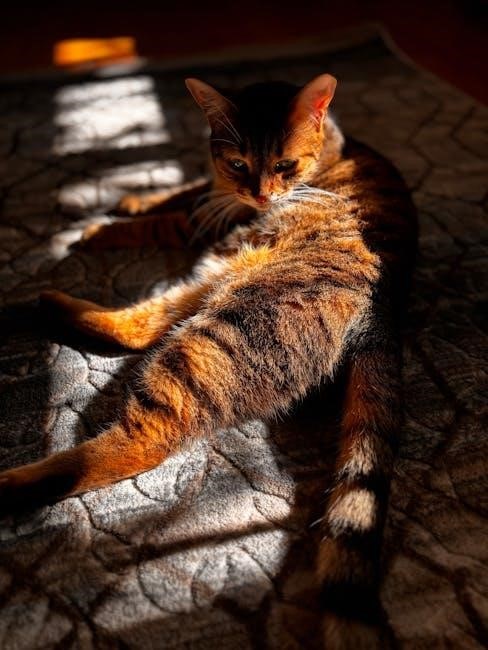
Beyond pain relief‚ beech leaves possess mild antiseptic properties‚ making them effective in preventing infection in minor cuts and scrapes. They can also be chewed and applied to rat bites‚ neutralizing some of the venom and reducing inflammation.
However‚ it’s crucial to note that beech leaves are not a substitute for stronger remedies when dealing with severe infections. They serve as a valuable first-line defense and supportive treatment‚ showcasing the Clan’s holistic approach to healing.
Bindweed: Applying Splints and Supporting Wounds
Bindweed‚ a climbing vine common in the Warrior Cats territories‚ plays a critical role in stabilizing injuries‚ particularly fractures and sprains. Unlike many herbs focused on internal healing‚ bindweed’s strength lies in its physical properties – its long‚ flexible stems are remarkably strong and adhesive. Medicine cats expertly weave bindweed around broken limbs‚ effectively creating natural splints to immobilize the injury and promote proper bone alignment.
Beyond splinting‚ bindweed also serves as a supportive bandage for deep wounds. Its clinging nature helps to hold the edges of the skin together‚ reducing bleeding and preventing further contamination.
However‚ caution is advised; bindweed must be applied carefully to avoid constricting circulation. Skilled application is key to harnessing its benefits without causing additional harm.
Borage: Fever Reduction and Strength
Borage‚ easily identified by its small‚ blue‚ star-shaped flowers‚ is a highly valued herb in the world of Warrior Cats‚ renowned for its dual properties of fever reduction and strength restoration. When a cat suffers from a high fever‚ often accompanying illness or infection‚ borage is administered to help lower their body temperature and alleviate discomfort. It’s considered a gentle yet effective remedy for battling overheating.
However‚ borage’s benefits extend beyond simply treating fever. It’s also known to revitalize weakened cats‚ boosting their energy levels and aiding in recovery after injury or prolonged illness. This makes it particularly useful for cats recovering from battles or harsh winters.
Medicine cats carefully prepare borage‚ often consuming it themselves to understand its effects before administering it to others.
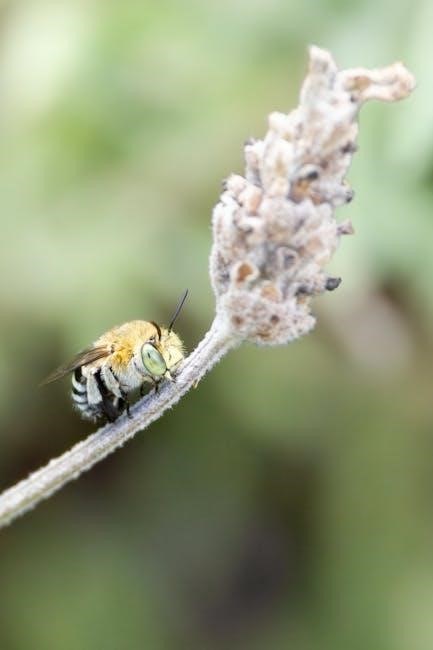
Herbs for Specific Ailments
Warrior Cats medicine cats utilize specialized herbs to address particular injuries and illnesses‚ like cobwebs for staunching blood and dock leaves for soothing burns.
Cobwebs: Stopping Bleeding and Wound Protection
Cobwebs are a foundational element in any Warrior Cats medicine cat’s arsenal‚ prized for their remarkable ability to quickly stem bleeding from wounds. These aren’t just any spiderwebs; medicine cats seek out clean‚ dry webs‚ often found in sheltered locations like barns or caves‚ carefully collecting them without disturbing the spider.
The application is straightforward: a generous wad of cobweb is pressed firmly onto the injured area. The web’s natural properties create a temporary seal‚ encouraging clotting and minimizing blood loss. Beyond simply stopping bleeding‚ cobwebs also provide a protective barrier against infection‚ shielding the wound from dirt and bacteria while it begins to heal.
However‚ it’s crucial to remember that cobwebs are a temporary solution. They don’t heal the wound‚ merely control the immediate danger of blood loss and contamination. Medicine cats will typically follow up with other herbs‚ like marigold or honey‚ to promote proper healing and prevent infection.
Dock: Soothing Burns and Nettles
Dock leaves are a staple remedy for burns and the stinging irritation caused by nettles within the Warrior Cats world. Easily identifiable by their broad‚ oval-shaped leaves‚ dock grows in damp meadows and along riverbanks‚ making it relatively accessible to medicine cats. The plant’s cooling properties are central to its medicinal use.
When a cat suffers a burn – from hot stones‚ fire‚ or even sun exposure – a chewed poultice of dock leaves is applied directly to the affected area. This provides immediate relief from pain and inflammation‚ helping to soothe the damaged skin. Similarly‚ for the agonizing sting of nettles‚ a dock leaf rubbed over the affected area neutralizes the irritant‚ offering instant comfort.
It’s important to note that dock is primarily a soothing agent; it doesn’t actively heal the underlying tissue damage. Medicine cats often combine dock with other herbs to promote faster and more complete recovery.
Feverfew: Reducing Fever and Headaches
Feverfew is a highly valued herb in the Warrior Cats medicinal repertoire‚ renowned for its ability to combat fevers and alleviate debilitating headaches. Characterized by its daisy-like flowers and finely divided leaves‚ feverfew thrives in sunny locations‚ often found growing wild in meadows and along woodland edges. Medicine cats carefully harvest the leaves and flowers for their potent properties.
When a cat is afflicted with a fever‚ feverfew is typically administered as a cooling poultice or consumed as a tea. The herb works to regulate body temperature‚ bringing down dangerous spikes and easing the associated discomfort. Furthermore‚ feverfew’s analgesic qualities make it effective in treating severe headaches‚ providing relief from throbbing pain and restoring clarity.
It’s crucial for medicine cats to use feverfew judiciously‚ as excessive consumption can lead to unwanted side effects. Careful dosage is key to maximizing its benefits.
Marigold: Treating Infected Wounds and Bites
Marigold‚ easily identified by its vibrant orange and yellow petals‚ is a cornerstone of infection control within the Warrior Cats’ medical practices. This common flower possesses remarkable antiseptic and antibacterial properties‚ making it invaluable for treating infected wounds‚ scratches‚ and particularly‚ the painful bites inflicted by rats or other creatures. Medicine cats diligently seek out marigold blossoms during their gathering expeditions.
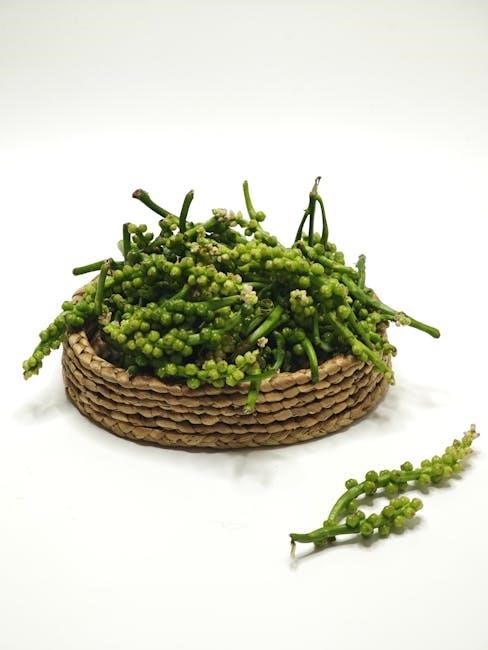
Typically‚ marigold petals are chewed into a poultice and directly applied to the affected area. This application draws out infection‚ reduces inflammation‚ and promotes faster healing. The herb’s natural compounds combat harmful bacteria‚ preventing the spread of disease and minimizing the risk of complications like swelling or fever.
Marigold is also effective in soothing irritated skin and lessening the discomfort associated with infected injuries‚ offering a vital remedy for Clan cats.

Potentially Dangerous & Misunderstood Herbs
Warrior Cats lore cautions against certain herbs; deathberries‚ water hemlock‚ and foxglove pose significant risks due to their toxicity and potential for severe harm.
Deathberries: Toxicity and Avoidance
Deathberries‚ vividly described in Warrior Cats‚ are exceptionally poisonous and represent a grave danger to any cat who ingests them. These small‚ dark-red berries are easily identifiable‚ though their tempting appearance belies their lethal nature. Even a single berry can cause weakness‚ vomiting‚ paralysis‚ and ultimately‚ death – a fate no medicine cat wishes upon their Clanmates.
Medicine cats must be rigorously trained to recognize deathberries at all stages of growth and to educate other Clan members‚ especially kits‚ about the severe consequences of consumption. Avoiding areas where deathberries are known to grow is paramount‚ and any suspected ingestion requires immediate intervention‚ though even then‚ the prognosis is often bleak. The plant serves as a stark reminder of nature’s capacity for both healing and harm.
Water Hemlock: Severe Poisoning Risk
Water Hemlock‚ a highly toxic plant within the Warrior Cats universe‚ poses an extreme threat to Clan cats. Often found near streams and damp areas‚ this plant’s deceptively innocent appearance hides a potent poison that affects the nervous system. Ingestion leads to violent seizures‚ tremors‚ and ultimately‚ a swift and agonizing death – making it one of the most feared plants in the forest.
Medicine cats must be exceptionally vigilant in identifying water hemlock‚ teaching Clan members to avoid it entirely. There is no known antidote within the series‚ emphasizing the critical importance of prevention. Symptoms appear rapidly‚ demanding immediate recognition and isolation of the affected cat to prevent further spread of potential contamination. The plant underscores the delicate balance between life and death in the wild.
Foxglove: Heart Problems and Caution
Foxglove‚ a striking purple-flowered plant in the Warrior Cats world‚ is a potent herb requiring extreme caution. While possessing medicinal properties‚ particularly for heart ailments‚ its use is incredibly delicate and fraught with danger. Incorrect dosage can easily lead to severe heart problems‚ causing weakness‚ irregular heartbeat‚ and even fatal cardiac arrest.
Experienced medicine cats utilize foxglove only as a last resort‚ carefully measuring and administering it to cats suffering from specific heart conditions. Its power demands respect and precise knowledge. The plant serves as a stark reminder that even beneficial herbs can become deadly if mishandled. Novice medicine cats are strongly advised to avoid using foxglove until they’ve mastered fundamental herbalism principles and gained extensive experience.

Gathering and Storage of Herbs
Warrior Cats medicine cats practice sustainable gathering‚ respecting the environment while collecting vital herbs; proper storage in cool‚ dry places preserves potency.
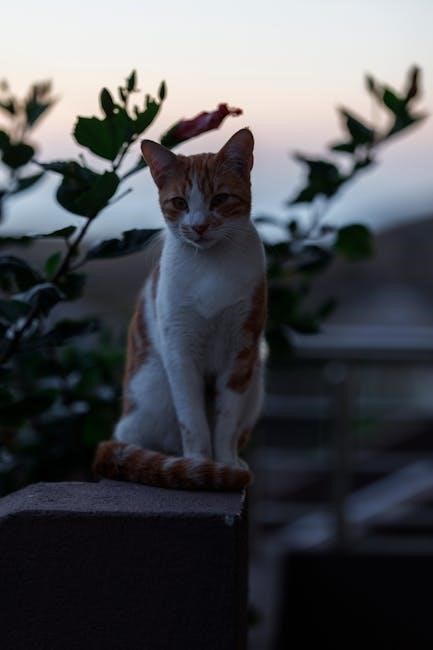
Sustainable Herb Gathering Practices
Warrior Cats’ medicine cats demonstrate a profound respect for the natural world‚ understanding that the continued availability of herbs depends on responsible gathering practices. This isn’t simply about taking what’s needed‚ but ensuring the long-term health of the herb populations within their territories.
A key principle is avoiding over-harvesting. Medicine cats wouldn’t strip an area bare‚ instead taking only what’s immediately required for healing. They’d rotate gathering locations‚ allowing previously harvested areas to regenerate fully before returning. Consideration is given to the plant’s lifecycle; gathering only mature leaves or flowers‚ leaving the roots intact to encourage regrowth.
Furthermore‚ medicine cats likely possess knowledge of where specific herbs thrive‚ focusing their efforts on areas where the plant is abundant. They would avoid disturbing sensitive ecosystems or rare plant communities‚ prioritizing the overall balance of nature. This mindful approach ensures future generations of Warrior Cats have access to the healing power of herbs.
Proper Herb Storage Techniques
Maintaining the potency of herbs is paramount for Warrior Cats’ medicine cats. Proper storage isn’t merely about keeping herbs dry; it’s about preserving their medicinal properties for when they are most needed. Given the Clans’ natural lifestyle‚ storage methods would likely be simple yet effective;
Dried herbs‚ such as chamomile or feverfew‚ would be carefully bundled and hung in cool‚ dark‚ and well-ventilated spaces – perhaps within the medicine den itself‚ away from direct sunlight. Woven baskets or clay pots‚ sealed with natural materials like beeswax or mud‚ could protect herbs from moisture and pests.
Fresh herbs‚ like marigold or dock‚ might be wrapped in damp moss or clean leaves to maintain hydration for short periods. Honey‚ mentioned in some sources‚ could act as a natural preservative for certain herbs‚ creating a soothing and potent remedy. Careful labeling and organization would be essential‚ ensuring quick identification during emergencies.
Tools Used by Medicine Cats
Beyond a deep understanding of herbs‚ Warrior Cats’ medicine cats rely on a collection of tools to effectively prepare and administer remedies. While not explicitly detailed in all sources‚ we can infer practical necessities based on their tasks and environment.
Sharp stones or shells would serve as cutting tools for harvesting and preparing herbs. Mortars and pestles‚ crafted from stone or wood‚ would be essential for grinding herbs into powders for easier consumption or application. Clean moss or soft leaves would function as bandages and dressings‚ held in place with carefully woven vines or strips of bark.
Containers‚ like hollowed-out gourds or tightly woven baskets‚ would be used to collect‚ store‚ and transport herbs. Additionally‚ tools for applying remedies – perhaps smooth sticks for spreading poultices or feathers for gentle application – would be invaluable. The medicine cat’s den itself‚ a carefully organized space‚ would be their primary workshop.
Advanced Herb Knowledge
Warrior Cats’ skilled medicine cats master complex combinations‚ understanding synergistic effects for challenging illnesses and locating rare‚ potent herbs for exceptional healing.
Herb Combinations for Complex Illnesses
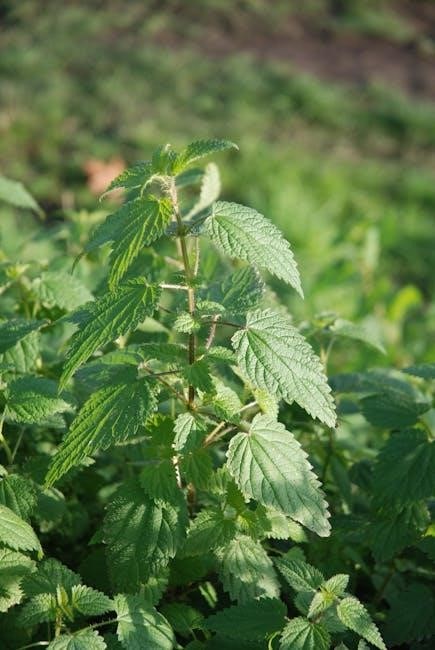
Warrior Cats medicine isn’t simply about applying a single herb; truly skilled healers understand the power of synergy. When facing complex ailments‚ medicine cats often combine multiple herbs to address symptoms from various angles and boost overall effectiveness.
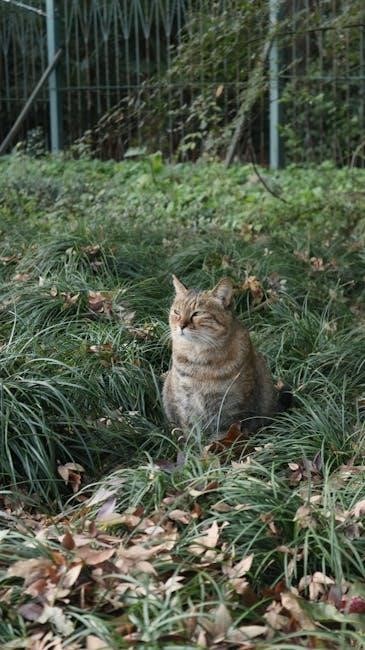
For instance‚ a severe infection might require marigold to combat the initial inflammation‚ alongside cobwebs for wound protection and potentially borage to restore strength depleted by the illness. Feverfew could be added to manage accompanying fever and headaches.
Understanding how herbs interact is paramount. Some combinations might amplify each other’s effects‚ while others could counteract them. A medicine cat’s deep knowledge of each herb’s properties‚ and careful observation of the patient’s response‚ are crucial for successful treatment of intricate conditions.
Identifying Rare and Powerful Herbs
Beyond the commonly known healing plants‚ the Warrior Cats world hints at rarer‚ more potent herbs‚ demanding exceptional skill to locate and utilize. These aren’t found in every territory and often require venturing into dangerous or secluded areas.
While specific details are scarce‚ the lore suggests certain herbs possess unique properties – perhaps accelerating healing‚ offering immunity to specific toxins‚ or even aiding in spiritual journeys. Identifying these requires not just botanical knowledge‚ but also an understanding of subtle environmental cues and ancient lore.
Medicine cats must rely on inherited wisdom‚ careful observation‚ and sometimes‚ guidance from StarClan to discover and safely employ these powerful resources. Misidentification or improper use could have severe consequences‚ highlighting the responsibility that comes with such knowledge.
The intricate system of herbal medicine within the Warrior Cats universe isn’t merely a plot device; it’s a cornerstone of Clan culture‚ reflecting a deep connection to the natural world and a respect for ancient traditions. This knowledge‚ passed down through generations of dedicated medicine cats‚ ensures the survival and well-being of the Clans.
As the series evolves‚ the exploration of herb lore continues‚ offering new discoveries and deepening our understanding of this fascinating aspect of the world. The enduring appeal lies in its blend of realism and fantasy‚ grounding the stories in a believable ecological framework.
Ultimately‚ the legacy of Warrior Cats herb lore reminds us of the power of nature and the importance of preserving traditional knowledge for future generations.